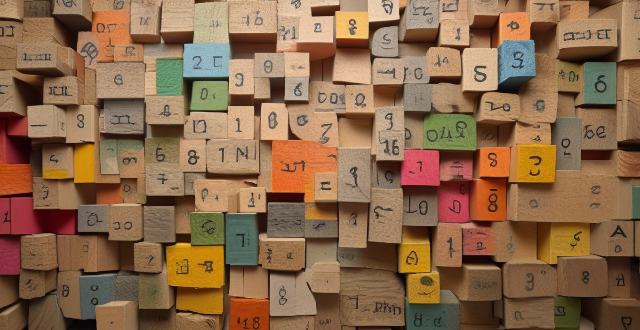Number sense is a crucial skill for effective problem-solving, involving an intuitive understanding of numbers and their relationships. It's important for efficiency, flexibility, and confidence in handling numerical tasks. To improve your number sense and estimation skills, practice rounding and estimating, use benchmark numbers, work with different representations, engage in mental math exercises, analyze mistakes, and seek out challenging problems. Consistent practice and real-world applications are key to developing a more intuitive understanding of numbers and enhancing problem-solving abilities.

How Can I Develop Better Number Sense and Estimation Skills for Problem-Solving?
What is Number Sense?
Number sense refers to an intuitive understanding of numbers, their relationships, and the ability to use this understanding flexibly in various contexts. It involves recognizing number patterns, making reasonable estimates, and using numbers effectively in problem-solving situations.
Why is Number Sense Important for Problem-Solving?
Key Points:
- Efficiency: A strong number sense allows you to quickly make reasonable estimates and choose efficient strategies for solving problems.
- Flexibility: It enables you to adapt your thinking to new and unfamiliar problems.
- Confidence: Having a good number sense can boost your confidence in handling numerical tasks.
Strategies to Improve Your Number Sense and Estimation Skills
1. Practice Rounding and Estimating
- Round Numbers: Get into the habit of rounding numbers to easier values (e.g., tens, hundreds, or thousands) and practice calculating with these rounded values.
- Estimate Sums and Differences: Before performing calculations, estimate the result. For example, if you're adding $47 + 58, round to $50 and $60, respectively, and estimate the sum to be around $110.
2. Use Benchmark Numbers
- Memorize Key Numbers: Learn key multiplication facts, squares, and cubes (e.g., $10 \times 10 = 100$, $5^2 = 25$).
- Compare to Benchmarks: When encountering a calculation, compare it to a benchmark that is easy to work with (e.g., comparing $34 \times 9$ to $30 \times 10$).
3. Work with Different Representations
- Visualization: Use graphs, diagrams, and manipulatives to understand numbers and their operations better.
- Concrete Examples: Apply mathematical concepts to real-world scenarios to solidify your understanding.
4. Practice Mental Math
- Regular Drills: Set aside time for mental math exercises to improve your speed and accuracy.
- Games and Puzzles: Play games like Sudoku, crossword puzzles, or card games that involve numbers.
5. Analyze Mistakes
- Reflect on Errors: When you make a mistake, take time to analyze why it happened and how you can avoid it in the future.
- Learn from Misconceptions: Identify common misconceptions and actively work to correct them.
6. Seek Out Challenging Problems
- Variety of Problems: Solve a wide range of problems to expose yourself to different types of number relationships and operations.
- Real-World Applications: Look for opportunities to apply your number sense in daily life, such as budgeting or measuring ingredients while cooking.
Conclusion
Improving your number sense and estimation skills requires consistent practice and a willingness to engage with numbers in diverse contexts. By incorporating these strategies into your daily routine, you can enhance your problem-solving abilities and develop a more intuitive understanding of numbers. Remember, the key is to make learning an ongoing process, integrating it into your everyday activities and continuously challenging yourself with new and varied problems.